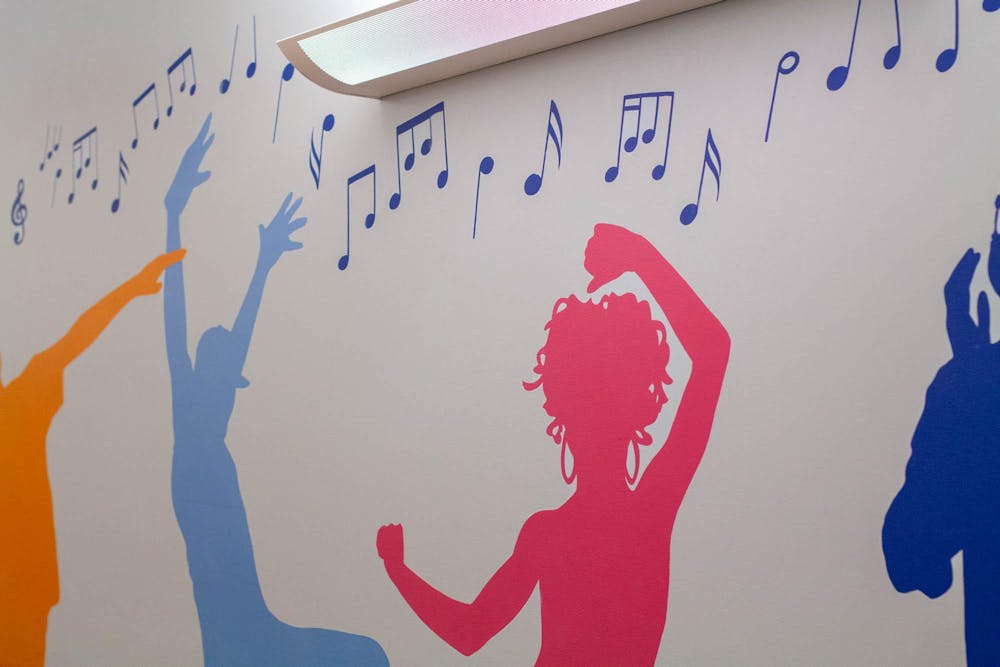Content Warning: This article contains mentions of mental health.
At UNC Health, music is a space for emotional and physical support and remains an important strategy for improving and humanizing patient care during times of crisis, music therapists Maryrose Nelson and Joyu Lee said.
Starting in 2018, music therapists joined UNC Health to help achieve clinical therapeutic goals – including treating pain and physiological injuries, promoting mental health outcomes and providing end-of-life care. Therapies are managed by licensed professionals who have graduated with a degree in music therapy, completed an internship experience and passed a national exam supervised by the Certification Board for Music Therapists.
With recent events such as the COVID-19 pandemic and the Aug. 28 on-campus shooting still impacting students at the University, Nelson, who works for UNC Health, said the music therapy program is something that is both hopeful and creative for students.
“We want to engage in the issues that are affecting people,” Nelson said. “My hope is that we can raise awareness, and we can also within our fields do better work that is more honest and culturally responsive to people's lived experiences and needs.”
Ashley Taul, a UNC Health music therapist who works at the Youth Behavioral Health Hospital, said many of her patients often experience depression, anxiety and suicidal ideation. To perform a music therapy evaluation, she said she often has to learn about the patient on a deeper level.
“We are learning their likes, their dislikes, a little bit about their diagnoses, their journey, where they’ve been and what they've been through,” Taul said. “Then, what we do as music therapists is we actually identify goals to work on.”
Taul said some positive interventions include engaging her youth patients in group music therapy sessions with peers to foster social interactions and “Post-it Note songwriting," where patients contribute ideas and work together to write a song.
Lee, a senior therapist, said active music-making is one major part of music therapy.



